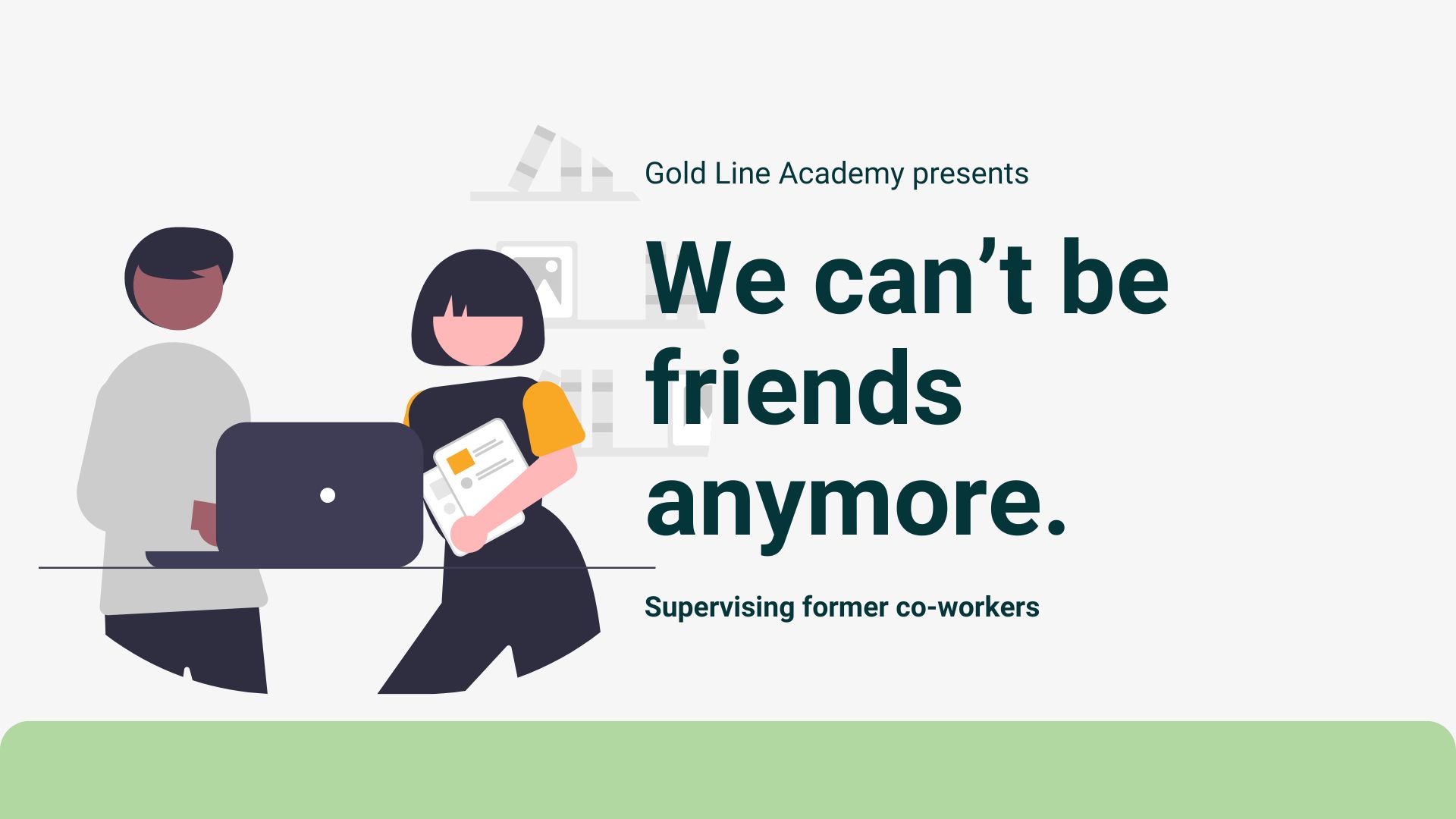What happens when you start supervising your work bestie?
When I was promoted from dispatcher to shift supervisor at my emergency communications center (ECC), I felt a whirlwind of emotions. After five years with my agency, I took the official leap into leadership. I was energized and excited about my new role! I couldn’t wait to make positive change and be a (self-described) Voice of The People. When the initial excitement wore off, I discovered that the transition was far from easy. Not many people talk about this aspect of supervision, but there is a level of discomfort and loneliness that bubbles up when you are faced with counseling your new subordinates (AKA former co-workers) and making unpopular decisions because it is the right thing to do. Despite the personal conflict, promoting was one of the best decisions I ever made.
One of the most valuable stances that any organization can take is to prioritize mentorship among its members and promote from within, rather than rely solely on recruiting external candidates. This shows employees that there is a potential career path for them and that leadership has a basic understanding of what first-line employees do for the agency. No doubt, we have all had at least one leader in our chain of command who either never donned a headset or who wasn’t humble enough to make room at the table for the ECC subject matter experts. It is easy to suss out those who do not fully appreciate the important role of first-line employees. In such a tight knit community, they stick out like a sore thumb (IYKYK). We need buy-in at each level of the agency in order to get things done, so we need leaders with practical, hands-on experience who can advocate for all employees. If you’re even entertaining the idea that you could be that person for your agency, we need YOU! Here are some things you can do to socially transition into your new position of leadership:
1. Redefine Friendships
Becoming a shift supervisor, manager, or director means that you’re going to have to give up or redefine friendships. It’s a bummer and it can take an emotional toll. The good news is that you will have former co-workers who have a level of maturity and professionalism which allows them to respect your new role. Your professional relationship with those employees can evolve into one of deep mutual respect. There will be others who try to keep you locked into the role you once held in their life. For those who don’t quite get it, it is important to treat them with equal amounts of respect and fairness while maintaining a professional distance.
Critically important: Be aware of perceptions of favoritism. Everyone on the shift knows who you hung out with before you were promoted. You cannot treat that person with any deference now that you are a supervisor (don’t be exceptionally hard on them just to prove a point, either).
2. Recognize That You’re Growing
There might be questions about who you are as a leader versus who you were as a subordinate. You will have to reconcile the person that went out to the bar with a group of co-workers for $10 all-you-can-drink night (which ended in you passing out in the bushes outside a Waffle House) and the person who takes care not to share too much private information at work and skips out on the rowdy pub crawls. You might have been known to call out for an occasional mental health day and now, as a supervisor, you have to counsel a subordinate for a pattern of absenteeism. It’s going to be awkward and you might feel like a hypocrite. The only way to get through it is to grow through it.
Critically important: You are a leader, both on and off duty. You cannot expect others to reliably come to work if you do not reliably come to work. Show up and be the best version of yourself and the rest will fall into place.
3. Acknowledge the Emotional Toll
One evening, it was unusually “Q” (I am superstitious and won’t say the word) in the comm center and my team settled into little pockets of conversation while I sat at my supervisory console, probably filling out schedules or some other administrative task. It was then that I felt an incredible wave of loneliness wash over me. It became clear that there was an invisible line between me and my team. Where I used to be the person involved in making plans and developing inside jokes, I was the outsider. The feeling of exclusion almost physically hurt. Years later, when I was promoted from being one of a group of ECC Managers to a role overseeing all of the ECC Managers, the same painful feeling washed over me. It was like the tide coming in, over and over again. My former friends now saw me as The Man, not as one of them. I wasn’t included in new group texts or invited out for margs. I didn’t even have a co-worker on my same operational level to commiserate my feelings with. Being someone else’s boss when what you really want is to be liked isn’t for the faint of heart. Many times, those states of being are contradictory. If you don’t have a tough exterior, be ready for scrapes and bumps along the way.
Critically important: You might be someone’s boss, but you are a human being, first and foremost. Don’t ever accept anything less.
4. Get a Life
I know so many people (myself included) who live, eat, and breathe public safety. When you spend so much time at work and some of your duties are emotionally-charged, it’s easy to feel like the ECC is your home and your team is your family. You experience trauma together. You laugh together. You get frustrated at the same field unit who mumbles into their mic together. When your job feels more like a calling, it’s easy to commit your life to the cause. Once you’re settled in and have a good feel for your new job, start cultivating your hobbies. Join social groups to make new friends. Work on projects that spark your creativity. Stay physically and mentally active by doing things outside of the public safety realm. This also helps lessen the emotional toll previously mentioned.
5. Keep Your Eyes on the Prize
When things get difficult and you are challenged by an unpopular organizational change, troublesome employee behavior, or some new curveball, remember why you became a supervisor. You wanted to make a positive impact on your work environment. You wanted to give back to your community, at large. You wanted to learn new skills and see a whole new perspective of your ECC’s operations. Take a step back and a deep breath, but keep pushing through. It will get better.
Being a part of ECC leadership can be rewarding and provide you with invaluable new skills and knowledge. Along the way, you will connect with people on a new level and develop lasting professional relationships with people both inside and outside of your organization. Your previous life as a dispatcher, call taker, teletype operator, or other line-level role within the ECC is critical to helping you remember where you came from and what the real priorities are. At the same time, redefining relationships with co-workers-turned-subordinates can be uncomfortable and alienating. The discomfort won’t last forever. Stay true to who you are, your agency’s mission, and do right by your subordinates!



